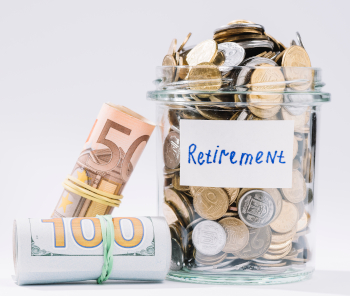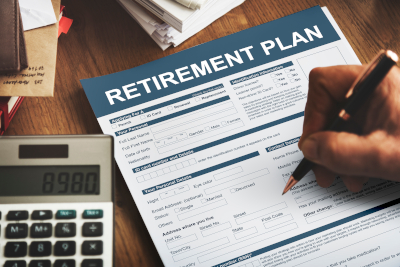Retiring Well

No matter what your age, you no doubt have thought heavily about how you’re going to reach a point when you can retire. You see seniors around you who are clearly living a great life, and you want that, too. The sooner the better, you probably think. But what does it take to get there?
What’s it cost to retire?
The short answer is, more than you think. The number that’s batted around for Canadians is that you’ll need at least $756,000 in savings/investments to retire with a hope of having a comfortable life. And if you plan to take on an upgraded lifestyle, you’ll need even more.

A survey by Canadian Imperial Bank of Commerce (CBIC) found that over half of Canadians worry they aren’t saving enough, and 37% don’t have any kind of retirement plan at all. That’s a staggering number. Do you fall into one of those camps?
Retirement generally lasts 20-25 years. That’s a long time to be worried about money. Yes, there are government pensions and other programs to help, but they won’t cover it all by any means. That’s probably why Canadians are working well past retirement because they have to, not because they want to, according to CBC Radio. The same source said fewer workers between 55 and 64 years old retired in the last year, compared to the year before. A sobering thought.
Let’s look at some strategies to get you to retirement in good shape.
Get a Pig
Parents often start kids out learning about savings by giving them a piggy bank. Somewhere along the line, many of us forgot the lesson that when you put money in, it accumulates. (We also discovered the plug on the bottom of the pig and began taking out money when no one was looking. It can easily become a life-time habit.)

You need a dedicated retirement plan if you plan to retire. It’s as simple as that. For a in-depth article on the various pension plan and savings options available in Canada, check this article by Pension Solutions Canada. It includes estimates of what the average Canadian spends each year in retirement, pension and investment options and helpful tips to calculate when you should retire.
The other thing you need, right next to your pig, is a financial advisor. There’s a reason why this whole topic makes your palms sweat: you don’t know enough to make a good job of it. Financial advisors have spent years learning all the things you need to know, and can advise on your specific situation. Get one.
Don’t put it off
Young people think they have forever to plan for retirement, but if they don’t start early, it just gets harder. For those in the nearly 90% of Canadians who are not ready for retirement, it’s time to get serious.

What kind of life do you want after working? Travel the world? Grow a garden? Obviously, those two choices have very different price tags. Visit all the grandkids before they’re not kids anymore? Just sit outside your cabin and enjoy the sun? Everyone has a different picture that comes to mind when they imagine their retirement. To make it come true, you need the funds and the freedom to pursue it.
If you have a spouse/partner who plans to retire when you do, it doubles everything. The old adage that, “Two can live as cheaply as one,” is just not true.
Buckle down. Dedicate some time to envisioning your retirement, then gather a list of your assets and potential earnings, and begin working from where you are to where you want to be. Those happy retirees you see didn’t fall into that life accidentally.
Be realistic

The average retiree is going to need 70-80% of their working salary each year in retirement. Once you get an estimate of your various pension and other options, the difference between that and your target is what you need to save. It’s never too late to start saving, and it can begin in the smallest ways.
Go over your spending for the year. There will be things that were “optional.” If you add those up, that’s what you could have saved already this year by making better choices. No, you don’t have to live a life that is devoid of fun, but do you really need all those expenses? How many cable channels, how many meals out, how many closet-filling shopping sprees?
There’s great satisfaction in cutting something out and watching your savings grow, instead. Try it.






